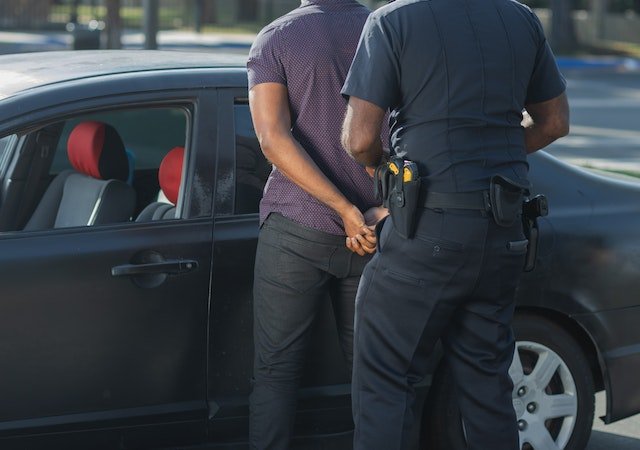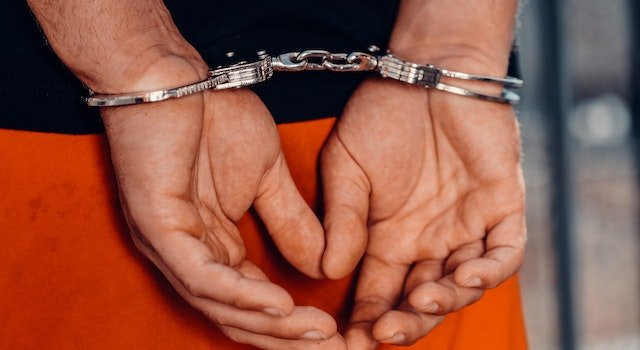Can An Off Duty Officer Arrest?
Off-duty officers may make an arrest in certain conditions. Off-duty officers are usually legally authorised to act if they are able to witness a crime or believe that swift action is required to safeguard them or their family members from injury. However, the precise legal authority and scope of the action may differ depending on the laws, regulations, and specifics in the jurisdiction where the officer is located.
Are Off-Duty Police Able To Be Able To Arrest The Suspect In NC?
In relation to law enforcement and the authority of arrest, it’s essential to know the rules and restrictions which apply, particularly when dealing with police officers on off duty. Within the State of North Carolina, the authority of police officers who are not on duty to arrest suspects is an issue of great interest and is often a source of concern for people in general. We will examine the legal framework that governs arrests of police officers off duty within North Carolina, examining the essential points and factors.
Understanding the Authority of Off-Duty Police Officers
Police officers who are off duty from North Carolina generally possess the same rights as those who are in the field. The authority they have to arrest is not limited to the time they are doing their job. There are, however specific elements and conditions that determine the authority they have.
Jurisdictional Limits
Police officers on off-duty’s powers to arrest are typically restricted to the region within which they work as police officers. Although an off-duty police officer might come across a crime that is not within their area of responsibility, their power to arrest a suspect may be restricted in these instances. It is advised that off-duty officers contact the police department’s on-duty officers in order to resolve the issue.
Identifying an Off-Duty Police Officer
When an off-duty police officer is required to take the necessary steps to make an arrest, it’s crucial that the person involved be capable of identifying the officer as an official of the law enforcement agency. Off-duty police officers might not be wearing their complete uniform or have an identification card, but they should be able to provide proof of their sworn status as an officer on request.
Acting within the Scope of Authority
Off-duty police officers are required to perform their duties within the limits of the authority they have and observe the same rules and regulations that are applicable to officers on duty. They must also have a reasonable basis to believe that a crime was committed and an arrest is needed. They must also only use the force necessary to make the arrest happen in accordance with the rules of proportionality and reasonableness.
Liability and Accountability
Like on-duty police officers, Off-duty police officers may be accountable for any misdeeds or violations of civil rights which occur in the course of an investigation. It is essential for them to use discernment, observe guidelines, and treat everyone fairly and with dignity. Any complaint or allegation of misconduct must be made known to the appropriate police agency for an investigation.
Cooperation with On-Duty Police Officers
If an off-duty police officer is arrested, It is recommended that officers call the police officers on duty immediately. This will allow the officers on duty to take over the arrest and to ensure that the proper procedures and documentation are in place. The cooperation between off-duty and on-duty officers is crucial to ensure an easy transition and efficient management in the event of an arrest.
Are Off-duty Officers Able To Stop You From Entering The UK?
Law enforcement officers play a vital function in ensuring peace and security on the roads. However, their powers and duties aren’t always clear when they are not on duty. When they are off duty in Britain United Kingdom, the question is: can an off-duty officer stop you? Let’s discuss this question in greater detail.
Authority and Powers
Police officers who are off duty in the UK are not able to exercise authority or capabilities compared to those officers in the field. Although they can be legally recognized as law enforcement officers, their capacity to enforce traffic laws is limited. Off-duty police officers generally are not able to stop cars or issue traffic tickets or arrest people. However, there are a few exceptions to this norm.
Exceptions to Limited Authority
Off-duty police officers are not able to exercise any power; there are instances in which they are able to apply certain authorities. For instance, if they are notified of a serious crime or crime that is taking place. In these instances, off-duty officers can immediately take action to stop injury or capture the perpetrator. If an off-duty officer detects a threat to the safety of the public, the officer can intervene and initiate the appropriate actions to safeguard lives and property.
Duty to Act
Off-duty police officers are bound by an ethical and moral obligation to take action if they are witnesses to an emergency or dangerous situation. Their primary duty is to safeguard the public. Their knowledge and training allow them to deal with critical incidents efficiently. So, if an off-duty officer notices a dangerous driving habit that presents the immediate risk of injury to others, they can intervene and take the appropriate action like signaling the driver to slow down or calling the authorities on duty.
Citizen’s Arrest
As per the power conferred under law, the Police and Criminal Evidence Act 1984, the members of the community, which includes off-duty police officers, are able to conduct a citizen’s search in the event of observing someone who is committing an offense that is arrestable. In other words, if an off-duty officer is witness to an aggravated traffic violation or a crime and is legally able to hold the person until police on duty arrive. It is important to keep in mind that any arrests made by citizens must be conducted in a manner that is responsible and within the limits that are set by law.
Professional Conduct
Off-duty officers must maintain the most professional standards at all times in their personal as well as professional lives. Although they might not be able to exercise the same authority as officers on duty, their actions will affect the work of their police department. Off-duty officers must be cautious and refrain from engaging in activities that may affect their position or put doubt on their abilities to provide a fair and impartial service to the public.
Collaboration with On-Duty Officers
In the event that off-duty officers are involved or observe a traffic violation, it is advised for them to reach out to the authorities on duty and give them the required details. Collaboration with officers on duty will ensure a smooth transfer of responsibility and avoids any confusion or misinterpretation regarding the incident. Officers on duty have the legal authority and power to take the appropriate action based on the information provided by the off-duty officer.
Can Police On Off-duty Be Able To Detain Canada?
The issue of whether off-duty police officers are able to make arrests in Canada is an issue of legal interpretation and the policies of jurisdiction. Although the authority of police officers extends far beyond their regular hours of operation in certain circumstances, there are limits and nuances that need to be considered. This will examine the subject in greater detail, including a brief overview of legal guidelines, conditions in which arrests off duty can be made, the potential for challenges, and the importance of police policies and guidelines when determining the extent of arrests made off duty in Canada.
Legal Framework
According to Canadian laws, the power to arrest people is typically given to police personnel who have been working. It is the Criminal Code of Canada outlines the power of arrest as well as the conditions under the circumstances they may be used. However, it doesn’t specifically deal with arrests made off duty. Thus the interpretation and application of the law regarding off-duty police officers who are arrested are subject to judicial scrutiny and the rules formulated by law enforcement agencies.
Off-Duty Arrests in Certain Situations
Off-duty police officers might not be able to exercise the same authority as police officers have when they are in the field. There are occasions when they may exercise their authority of arrest. For instance, in the event that an off-duty officer is able to witness the commission of a serious crime like a brutal attack or a robbery that is in progress, they could be justified in taking action to catch the perpetrator. In these instances, the actions of an off-duty officer are usually considered to be the actions of a private person instead of an official under the laws.
The Concept of Citizen’s Arrest
In Canada, Canadian citizens have a legal obligation to take arrests in certain situations. This concept is referred to informally as “citizen’s arrest.” Off-duty police officers performing their duties as citizens may use this lawful provision to arrest if they observe an individual who is who is committing a crime. It is essential to keep in mind it is important to note that the use of force has to be appropriate and justified under the circumstances, and the officer has to comply with the rules and regulations set forth by the law.
Challenges and Considerations
When it comes to arrests off duty, they are only permitted in certain situations, but there are issues and issues that police officers who are off duty have to be aware of. One issue is the potential for confusion or misunderstanding among the general public, who may not be able to recognize the off-duty police officer as an official of law enforcement. In these situations, it is essential that the officer identify themself as a police officer and clearly announce their intention to take action.
Police Policies and Guidelines
Law enforcement agencies across Canada have developed guidelines and policies that regulate arrests made off-duty of their personnel. These guidelines ensure that officers on duty understand their rights and limitations and also the procedure to follow when conducting an arrest. Police departments may require officers to wear documents or identification as evidence of their status as police officers, even when off duty, to prevent any confusion that might arise during an arrest.
Accountability and Oversight
As police officers on duty are accountable and subject to supervision, police officers off duty who arrest suspects are subject to the exact same rules. The use of force and other actions that are taken during an arrest off duty are under review and scrutinized. Police departments have internal mechanisms that investigate and evaluate the behavior of officers on leave to ensure that they are in compliance with the law and follow professional standards.
Can Male Police Officers Take The Female Uk?
The job of police officers is to enforce the law and to maintain order on the streets. They are accountable for capturing people who have committed crimes regardless of gender. For instance, in the United Kingdom, the law does not discriminate on gender in the process of arrest. So officers of the male gender are able to arrest the female suspect.we will examine this issue in depth, focusing on the legal requirements, concerns, and possible challenges that could be encountered.
Legal equality
In the UK and the United Kingdom, respect for equality as a matter of law is a key element in the system of justice. This means that every person, regardless of gender, is entitled to the same rights under law and obligations. Police are able to detain anyone they have probable grounds to believe they committed a crime, regardless of gender. The gender of a person does not confer protection from arrest or immunity.
Professionalism and Training
Male police officers receive extensive training to equip them with the capabilities and expertise required to complete their jobs efficiently. This training also includes courses on gender sensitivity, communication, and proper conduct when dealing with people of any gender. The police force is committed to professionalism and adheres to the legal requirements, making sure the male police officers are prepared to deal with arrests, even those that involve females.
Safeguarding and Dignity
While male police officers may arrest a female however, it is the UK police force understands the importance of protecting dignity and securing the rights of people in the process of arrest. Police officers are taught to use discretion and sensitivity to deal with people who are suspects regardless of gender. They are expected to adhere to appropriate procedures to ensure the safety and security of the person being detained, as well as ensuring they fulfill their obligation to uphold the law.
Female Officers and Assistance
In instances where it might be better or essential for a female officer to be involved, police departments in the UK typically employ female officers to assist with arrests. This is particularly important when conducting searches that require the participation of officers with identical gender. The presence of female officers ensures that the process of arrest respects the dignity and privacy of the person who is being detained.
Considerations and Challenges
Although male police officers are given the power to arrest females, there may be instances where certain challenges and considerations arise. For example, in situations when the arrest requires physical contact, like the restraining of a suspect, officers are required to employ only the proper and appropriate force. They should exercise caution and avoid actions that could be viewed as insufficient or unjust, no matter what gender.
Accountability and Oversight
To ensure accountability and good conduct, police forces have accountability and accountability. The police forces of the UK have established systems to investigate and deal with any possible abuse of authority or conduct during arrests. If a person believes that they were wrongfully or in a way during the process of arrest, They have the right to lodge a complaint. The police force is accountable for investigating complaints and taking the appropriate actions.
FAQs
Can an off-duty officer arrest someone?
Yes, off-duty police officers generally have the authority to make arrests just like when they are on duty. However, the extent of their authority may vary depending on the jurisdiction and the specific laws governing off-duty conduct.
Under what circumstances can an off-duty officer make an arrest?
Off-duty officers can make arrests when they witness a crime occurring in their presence, or when they have reasonable grounds to believe that a crime has been committed, even if they did not witness it firsthand. The same principles of probable cause and reasonable suspicion apply to off-duty arrests.
Are there any limitations to an off-duty officer’s arrest powers?
Yes, there are some limitations to an off-duty officer’s arrest powers. Generally, officers are expected to act within the scope of their jurisdiction and in accordance with their department’s policies. Some departments may have specific guidelines for off-duty arrests, and officers must adhere to them.
Do off-duty officers have to identify themselves when making an arrest?
Yes, off-duty officers are generally required to identify themselves as law enforcement officers when making an arrest. They should show their badge or otherwise make it clear that they are acting in their official capacity as a police officer.
Can off-duty officers make arrests outside of their jurisdiction?
In some situations, off-duty officers may have limited authority to make arrests outside of their jurisdiction. This authority may vary depending on state or local laws, mutual aid agreements between jurisdictions, or specific circumstances, such as hot pursuit of a suspect.
Are there any legal implications for off-duty arrests?
Off-duty arrests are subject to the same legal scrutiny as on-duty arrests. If an off-duty officer uses excessive force or acts outside the bounds of the law, they may face legal consequences and be held accountable for their actions.
Should off-duty officers intervene in every situation they encounter
While off-duty officers have the authority to make arrests, it’s essential for them to consider their own safety and the potential risks involved in intervening in certain situations. If they are not equipped or properly supported to handle a particular incident, it may be more appropriate for them to call on-duty officers to respond. Personal judgment and departmental policies should be taken into account when deciding whether to intervene while off-duty.


















